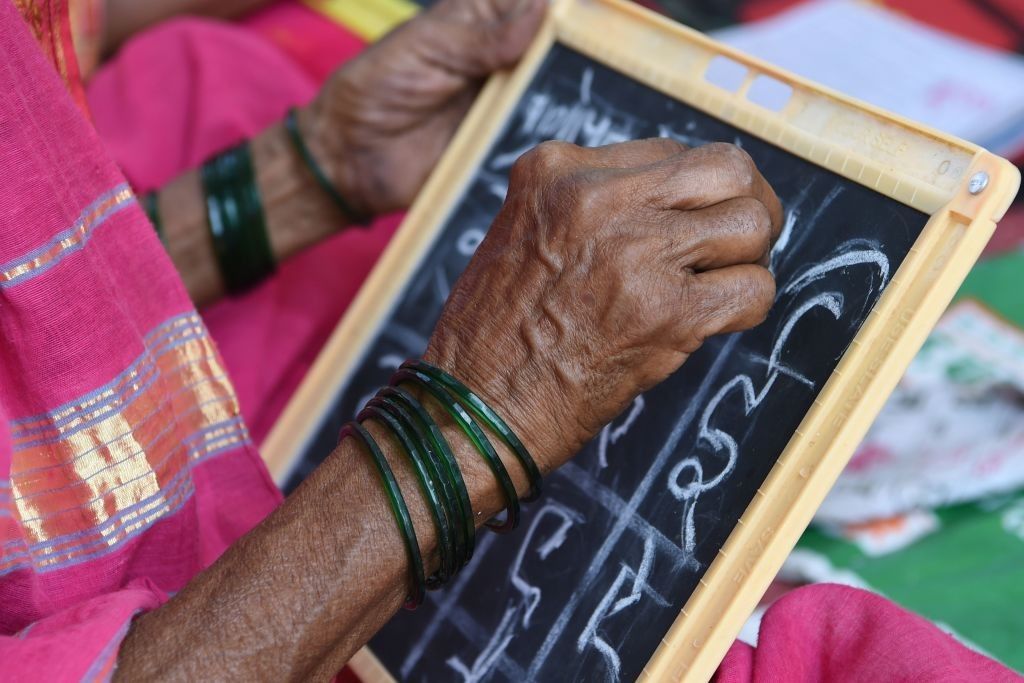- Thursday, April 10, 2025
Salima Khan got married in her teen before India’s Independence and worked as a subsistence farmer while raising five children after marriage.

By: Shubham Ghosh
SHE struggles to walk much these days but that doesn’t stop the 92-year-old Salima Khan from going to school to study. For the past two years, she has been accompanying her great-granddaughter-in-law Firdaus, 35, to a primary school in Bulandshahr in the northern Indian state of Uttar Pradesh where she has learnt to read and write.
According to a report by The Guardian, Salima’s enthusiasm for learning has motivated many young girls and married women in the area and they have enrolled in schools. Even her two daughter-in-laws have started attending classes. The story of Salima, also called ‘amma’ (mother), has spread fast on social media and women even in far-off regions in Uttar Pradesh have been inspired. Uttar Pradesh is a state with a very low female literacy rate.
“I have been going to school for the last two years. I have studied for the most part,”Salima, who said she was first attracted to the school by the free lunches, told The Guardian.
She was less fortunate in her younger days to get education. She was married by the time she turned 14, which was before India became independent in 1947. After marriage, she worked as a subsistence farmer while raising five children — four sons and a daughter.
Her children also received very little education. Their children, however, went to school and seeing them, Salima drew inspiration.
Thanking the teacher who taught her, she said the school will now take her test.
“I went to the school because I like to study and I studied a lot under the guidance of the headteacher. She has taught me a lot of things. I can do the counting and read too,” she was quoted as saying by the news outlet.
However, Salima’s writing capacity has been restricted by cataracts, her grandson Navinoor Khan said.
He said Salima also has problems with her hearing and vision, but that has not stopped her from pursuing education. A construction worker, Khan takes Salima and his 11-year-old daughter Afreen to school every day.
Khan also praised his grandmother for leaving a positive impact on the community. He said sometimes, as many as 20 women accompany her to school.
Pratibha Sharma, the headteacher at Chawli primary school where Salima studies, said the latter’s example can help better adult literacy rates in the region. It was Sharma who persuaded Salima to enrol her name after she started coming to school for the free lunch.
The headteacher said since Salima’s economic condition is not good, she used to come to school to know what meal (midday meal) was being prepared. This gradually encouraged her to take up the study.
“She cannot tell you the alphabet, but she can learn things orally. Her oral learning is good,” Sharma told The Guardian.
“This recognition of different learning abilities emphasises the inclusivity and flexibility required in education in our country, which we sometimes find lacking.”
Salima has appeared for the national literacy examination and if she clears it, she will get a certificate and a place among the country’s growing number of literate people.